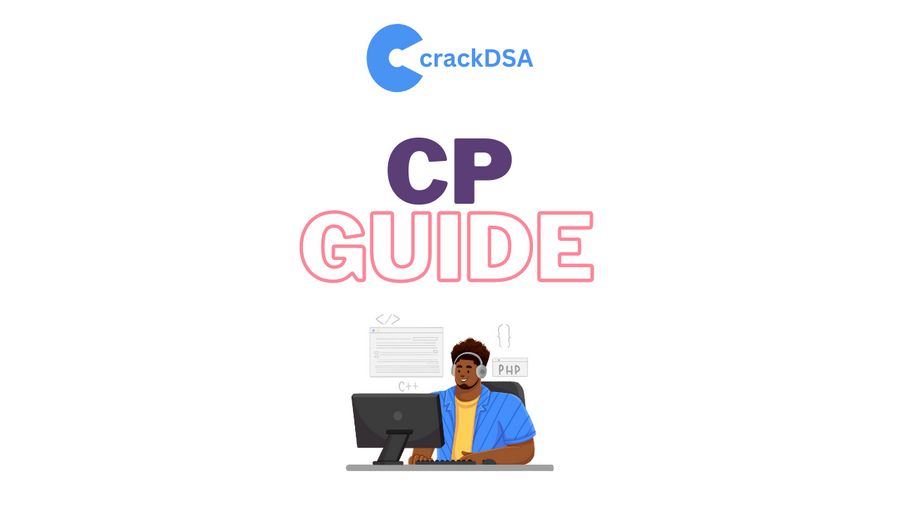· roadmaps
Competitive Programming Guide
Here you will get the complete step by step roadmap to start CP from scratch.

Complete CP Roadmap for Beginners 🚀
1. Understand the Basics of Programming Languages: 👨🏻💻
The first step to start Competitive Programming is to have a clear understanding of a programming language. A few popular programming languages for competitive programming are C++, Python, and Java. Once you select your preferred language, start learning the syntax, structure, and basic constructs like loops, conditional statements, and functions.
2. Choose a Platform: 🎯
There are several online platforms available for Competitive Programming. Some of the popular ones include Codeforces, CodeChef, HackerRank, and LeetCode. Choose a platform based on your skill level, and join their community. These platforms have multiple rounds of contests, allowing you to participate in regular competitions.
3. Start with Simple Problems: 📈
Once you understand the basics of programming languages, start solving simple problems. These problems are generally divided into categories based on difficulty levels, like easy, medium, and hard. Start with easy problems and gradually move on to harder ones as you gain experience.
4. Analyze Sample Solutions: 💥
After solving a problem, analyze the sample solutions. Try to understand how they have approached the problem and solved it. This will give you an idea of how to approach similar problems in the future.
5. Participate in Contests: 📣
Participating in contests is an excellent way to improve your skills. These contests have a set of problems with varying difficulty levels. Try to solve as many problems as possible within the given time frame. After the contest, analyze your solutions and compare them with others.
6. Learn Data Structures and Algorithms: 🔥
Data structures and algorithms are essential concepts in Competitive Programming. They help in solving problems efficiently. Some of the essential data structures and algorithms are arrays, linked lists, stacks, queues, trees, graphs, sorting algorithms, and searching algorithms. Learn these concepts and practice implementing them.
7. Practice, Practice, Practice: 📌
Practice is the key to becoming a successful Competitive Programmer. Spend time daily practicing problems and participating in contests. This will help you identify your weak areas and work on them.
8. Collaborate and Learn from Others: 👥
Collaborating with other Competitive Programmers is an excellent way to learn new concepts and strategies. Join online communities and forums, and discuss your problems and solutions with other programmers. This will help you gain new perspectives and improve your problem-solving skills.
9. Keep Yourself Updated: 🚀
Competitive Programming is constantly evolving, and new concepts and techniques emerge regularly. Keep yourself updated with the latest trends and changes in the field. Read blogs, watch videos, and participate in discussions to stay on top of the latest trends.
10. Don’t Give Up (Most Important) 💯
Competitive Programming can be challenging and frustrating at times. But don’t give up! Keep practicing, and eventually, you will become better. Remember, becoming a successful Competitive Programmer takes time, effort, and patience.
In conclusion, Competitive Programming is an exciting and challenging field that requires dedication, hard work, and practice. By following these steps and continually improving your skills, you can become a successful Competitive Programmer.